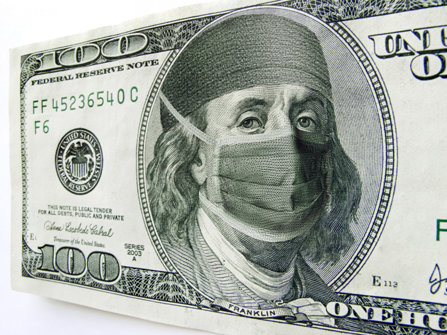The Connection between the FDA, Pharmaceutical Companies, and Addiction

One of the most common questions I hear regarding addiction is, “How did the addiction epidemic get so bad?” And I can see why people ask this. How on earth did addiction get so out of control in one of the most powerful, most well-maintained countries in the world? We have to entertain the genuine possibility that our drug crisis has only gotten this bad because it was allowed to get this bad.
We have to look at what caused the drug addiction crisis we are in now. It started with the increase in the prescribing of opioid pharmaceuticals in the late 1990s. Since then, the problem has grown and evolved and is now a complex combination of several different drug issues. But even more significant than that, we need to examine the unique relationship between pharmaceutical companies, Congress, and federal organizations such as the Food and Drug Administration. As hard as it might be to consider this possibility, we have to face the likelihood that the American drug addiction epidemic was allowed to happen.
Pharmaceutical Companies Are Some of the Top Donors to Congress
In politics, we tend to place too much authority and perceived power on the President. In all reality, a quick study of the American political system reveals that the President has very little actual power. In many ways, he is simply a mouthpiece for Congress. And did you know that pharmaceutical companies send huge sums of money to Congress?
I draw your attention to a group called Open Secrets. It’s an organization dedicated entirely to ethical reporting on which members of Congress accept donations from what companies and when. The organization shows the relationship between the federal government and big business. Perhaps the most concerning of those relationships is the fiscal pull that big-donor pharma companies have on both the Senate and the House of Representatives.
For example, in the 2017 to 2018 election cycle, pharma companies donated no less than $6,955,960 to Senate members and $16,823,447 to House of Representative members. The average donation to a Senator (or a politician running for a Senate seat) was $70,979. The average contribution to a Congressman (or a politician running for a House of Representatives seat) was $40,538.
What do we think Congress members are going to do when they are receiving such impressive sums from pharmaceutical companies? They are going to vote favorably on issues that would benefit those pharmaceutical companies. Clearly. Because goodness knows, they want to see checks like that in the future.
Words of Warning from Dr. Raeford Brown
“Congress is owned by pharma. The pharmaceutical industry pours millions of dollars into the legislative branch every single year…”
Let’s consider the words of Dr. Raeford Brown, one of the good guys, a pediatric anesthesia specialist at the UK Kentucky Children’s Hospital. He is also the chair of the Food and Drug Administration (FDA) Committee on Analgesics and Anesthetics. He is one of the few medical experts in the FDA who is willing to say what needs to be said regarding the FDA, pharmaceutical companies, and Congress. He recently commented on the fiscal relationship between pharma companies and Congress, and how this financial relationship adversely affects the health of the American people via their ongoing exposure to addictive prescription drugs. According to the doctor:

“Congress is owned by pharma. The pharmaceutical industry pours millions of dollars into the legislative branch every single year. In 2016, they put $100 million into the elections. That’s a ton of money. I’m really much more concerned because Congress is supposed to have oversight for the FDA. If the FDA isn’t going to hold pharma accountable, and Congress is getting paid to not hold pharma accountable, then it really doesn’t matter who the President is because it’s really about Congress.”
Dr. Brown, discussing the FDA’s dogged following of pharmaceutical companies and their belligerent unwillingness to make decisions that have the people’s best interests in mind, states:
“They (the FDA) should stop considering any new opioid evaluation. For every day and every week and every month that the FDA don’t do the right thing, people drop dead on the streets. What they do has a direct impact on the mortality rate from opioids in this country. Working directly with the agency for the last five years, as I sit and listen to them in meetings, all I can think about is the clock ticking and how many people are dying every moment that they’re not doing anything. The lack of insight that continues to be exhibited by the agency is in many ways a willful blindness that borders on the criminal.”Has the Past Taught Us Nothing?
Time for a history lesson. It’s pretty recent history, but it’s the kind of thing that isn’t reported much, and if it is, it’s easily forgotten in the hustle and bustle of day-to-day life. This information teaches us the lesson of just how much influence pharmaceutical companies have over our government. If we cannot reduce and eventually eliminate the influence of big business over Congress, we’ll never be able to hold pharmaceutical giants accountable for the addiction epidemic that we are currently in.
Let’s again look to Open Secrets and simply explore the disparity in funding that pharmaceutical companies have given to Congress over a period of time. Think the 2017-2018 election period was bad? Let’s look at the massive increase in pharma’s cash flow to Congress during the same time period when pharma companies were trying to get national agreement for the mass production and prescribing of addictive opioid painkillers. Let’s look at the 1990s and early 2000s.
According to Open Secrets, in 1990, pharma companies sent $1,481,253 to the House of Representatives and $1,310,847 to the Senate—not an insignificant sum. But fast forward to the 2000 election year and pharma companies sent $4,581,919 to the House of Representatives and $2,490,109 to the Senate. The sum contributions for 2000 were more than double the total contributions for 1990.
Shortly after the 2000 election, we started seeing skyrocketing manufacture and prescribing of opioid painkillers. People started dying from addictions and overdoses by the hundreds, and then by the thousands. All the while, Congress didn’t raise a finger to do anything about it. Why not? Probably because Congress was being influenced by the cash flow of major pharmaceutical conglomerates.

Fast Forward to Present-Day Issues
In 2019, the stage is much the same. While pharmaceutical companies do get sued over the prescription drug addiction crisis, the lawsuits never accomplish as much as we want them to. Pharma companies might pay out millions in fines, but that’s just pocket change for these multi-billion dollar companies.
And the lawsuits never enforce change. Fines are paid, and reparations are made, but none of the suits come to a close with a court order for sued pharma companies to “Cease all production of the prescription drug you are being sued over.” That would be a correct and fair ruling.
What are we going to do about this? In the 1990s it was the HIV/AIDS epidemic and Big Pharma’s monopoly over HIV medicine. And now in the 2000s, it is the addiction epidemic, an epidemic fueled by pharmaceutical opioids and other habit-forming drugs.
The only way to reduce Big Pharma’s influence over Congress and to reduce the addiction epidemic in the process is to simply stop using their products. Lawsuits help, but they will only ever take us so far. We have to take this crusade a step further.
Just as with any other business, pharmaceutical companies rely on the consumer. If we stop using their products, stop taking addictive opioid pain relievers, questionable antidepressant medication, habit-forming ADHD meds, and so on, their business will falter. We have to stop using the medicines that don’t work or which are harmful, and we have to start demanding medical solutions that are ethical and non-addictive. And we have to demand that Congress and the FDA support us in this.
Sources:
- https://www.opensecrets.org/industries/summary.php?ind=H04++
- https://finance.yahoo.com/news/congress-big-pharma-money-123757664.html
- https://thefreethoughtproject.com/top-fda-official-blows-whistle-as-agency-approves-drug-10x-worse-than-fentanyl-funded-by-dod/
- https://www.theguardian.com/us-news/2019/jan/24/fda-opioids-big-pharma-prescriptions
- https://www.opensecrets.org/industries/summary.php?ind=H04&recipdetail=A&sortorder=U&mem=Y&cycle=1990
- https://www.opensecrets.org/industries/summary.php?ind=H04&recipdetail=A&sortorder=U&mem=Y&cycle=2000
Reviewed and Edited by Claire Pinelli, ICAADC, CCS, LADC, RAS, MCAP


 ®
®